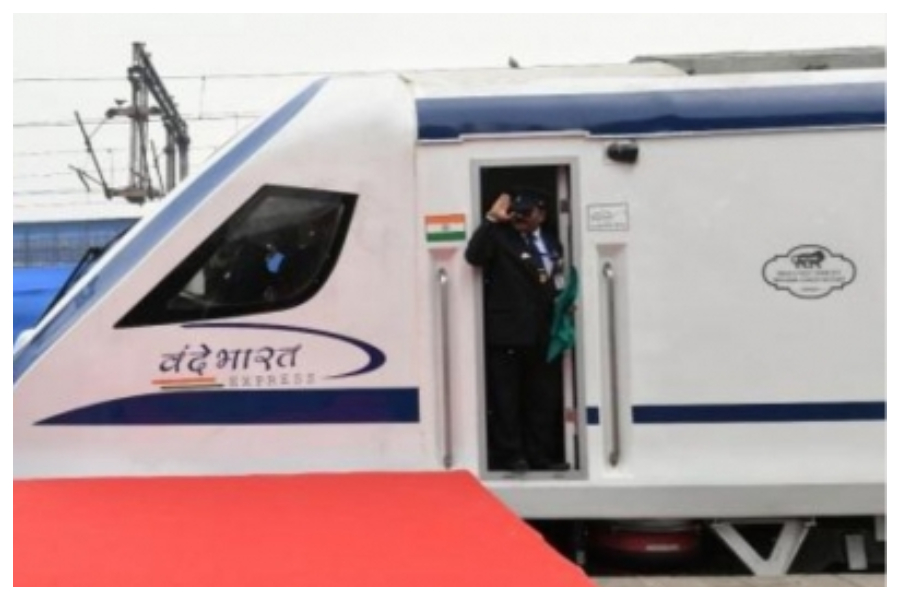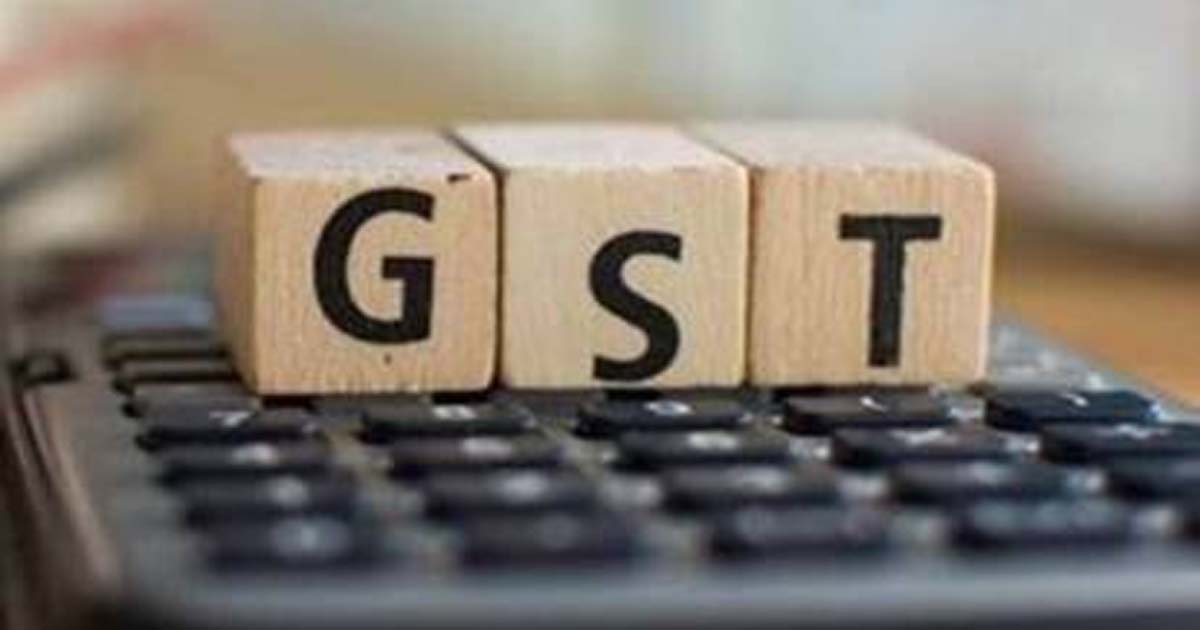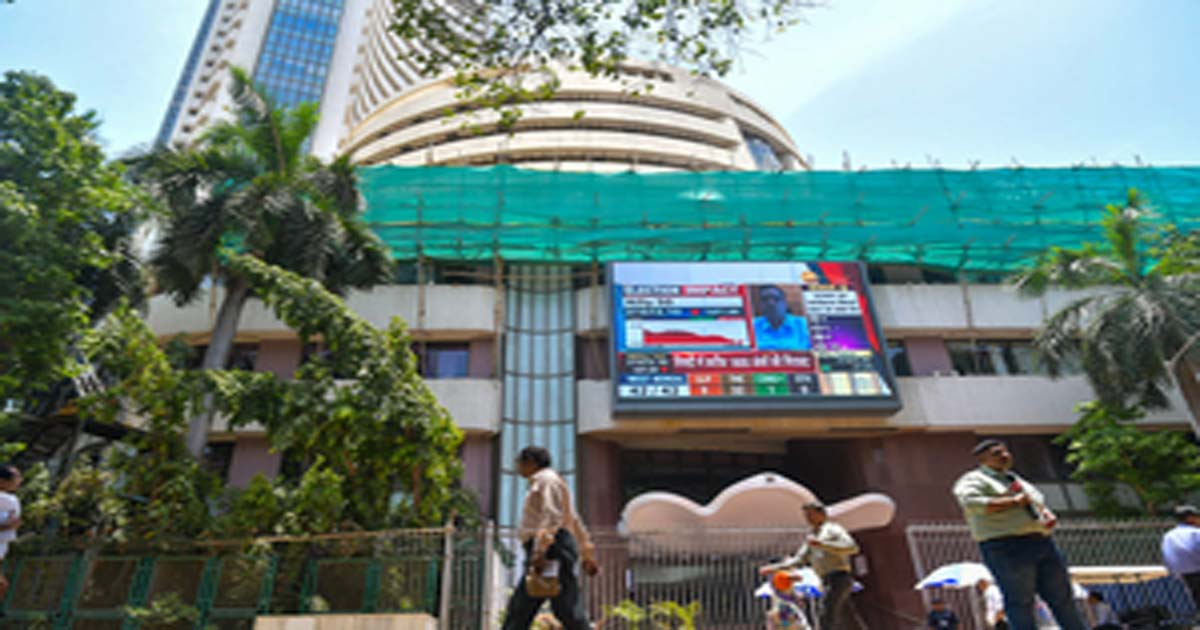Business
400 Vande Bharat trains: Rs 40,000 Cr business opportunity and jobs

Rolling out 400 Vande Bharat Express trains is about Rs 40,000 crore of business coupled with jobs and other spin-off benefits, said senior officials –present and past — of Indian Railways
Presenting the Union Budget for 2022-23, Indian Finance Minister Nirmala Sitharaman said 400 new energy efficient Vande Bharat trains will be introduced in three years.
The Vande Bharat Express is a semi-high speed train designed, developed and built by the Integral Coach Factory (ICF) at a frugal outlay of Rs 100 crore.
The Indian Railways officials preferring anonymity told IANS that 400 Vande Bharat trains over the next three years is not just headline catching announcement. It is about Rs 40,000 crore business opportunity that would also create 15,000 jobs and several spin -off benefits.
Presently there are only two Vande Bharat trains that are running — Delhi to Varanasi and Delhi to Katra.
“The trains without a pair are running six days a week without a breakdown till date since they were pressed into service a couple of years back. Perhaps Vande Bharat Express is the first train that is run without a pair,” a senior official at ICF told IANS with pride.
It is one classic example of ‘Make in India’ and far cheaper than similar trains that are rolled out by foreign companies.
The train has only about 15 per cent import content which will further go down if production volumes increase, officials told IANS earlier.
An ICF official said the third prototype is getting delayed due to production bottlenecks and logistical challenges due to the Covid-19 pandemic.
However, how the government is going to achieve its target of 400 Vande Bharat Express trains over the next three years is the Rs 40,000 crore question.
While it is really an ambitious target, it can be achieved in a staggered manner with the government giving better clarity on its plans, officials said.
Indian Railway Minister Ashwini Vaishnaw said the upgraded Vande Bharat train is expected to be ready for tests in April and commercial production is expected to start in August/September, 2022.
“I would think that a more realistic target of say 100-150 trains in three years would have been better. This target itself would need very concerted and committed action by railway executives, particularly at ICF,” Sudhanshu Mani, retired General Manager, ICF and the Creator of Vande Bharat Express told IANS.
He said, commercial production and necessary testing of the upgraded train is expected to start only in September 2022 and hence the target should be realistic.
“Rolling out the trains in large numbers may not be an issue. But where are they going to be deployed? The routes also have to be finalised,” Mani added.
Continuing further Mani said ICF should start working on Vande Bharat trainsets, including the sleeper version (code named Train 19) and 300 units of aluminium body trainsets (code named Train 20).
“There can be a foreign partner for rolling out aluminium body trains. In 5/6 year’s time 400 trains can be there,” he remarked.
When pointed out that the train could be rolled out by other coach manufacturing facilities in the country Mani said: “Initially only ICF should roll out as they understand the technology and other aspects. Spreading out the production to other units will result in quality issues.”
Concurring with him, a senior official not wanting to be quoted told IANS: “Only ICF should make it. It needs special skill sets and trained people are not available in other units.”
Officials also said spreading out the manufacturing not only would result in quality issues, but the ultimate death of the train that is successfully running without a hitch six days a week for the past couple of years.
While ICF would initially roll out the trainsets, the other units can take care of the maintenance works and acquire the production knowhow.
The other question is the availability of the vendors. Unless the government gives a clear roadmap, vendors may not ramp up their production capacity, officials said.
“The supply chain will take time to gear up. They can supply only at a steady rate. Out of the 400 trains, during the first year only 20 trains can be rolled out and 380 trains in the remaining two years is not possible,” the official added.
Further vendors and ICF officials are reluctant to touch the Vande Bharat train project after the witch hunt in the form of vigilance enquiry that was conducted and concluded recently without finding any discrepancy.
According to officials, there needs to be long term contracts — say 60 trains for the next 10 years — only then vendors can set up production facilities.
“Tenders and procurement process should be done in such a way that vendors can participate without worry,” they added.
Business
GST reforms prove tax moderation can boost revenues: Report

New Delhi, Dec 24: Recent reforms under GST 2.0 show that simplification and tax moderation can coexist with strong revenue growth, a report said on Wednesday, calling for freezing peak tax rates and expanding tax base through technology.
The white paper from Think Change Forum said that recent GST reforms proved wrong the long-held belief that higher tax rates are necessary to boost collections as gross GST collections rose 4.5 per cent (on-year) to Rs 1.95 lakh crore in October 2025.
The report argued that the rise in tax collection validated the principle that in high‑informality economies compliance elasticity outweighs rate elasticity. The report, however, flagged that India’s tax‑to‑GDP ratio of around 17 per cent masks a narrow direct tax base and heavy reliance on regressive indirect levies.
“High taxes — whether direct or indirect — always encourage evasion and corruption. Lower taxes widen the base and improve compliance. GST collections are rising because the economy is formalising — but we must avoid creating a new 40 per cent peak rate that undermines compliance. Ideally, GST should be restricted to just 5 per cent and 18 per cent,” said Yogendra Kapoor, author and public speaker.
The forum called for prioritising freezing peak direct tax rates, expanding the direct tax base through technology, avoiding MRP‑based taxation and completing the GST credit chain in the upcoming Union Budget.
As the compensation cess sunsets, the MRP-based taxation is prone to manipulation in a cash-heavy economy and the government should rely instead on clean, specific duties that are easier to enforce.
The Budget should outline a phased roadmap to bring petroleum, electricity and other excluded inputs under GST to restore tax neutrality and reduce cascading costs for industry, it added.
It also listed other priorities including incentivising productive reinvestment and aggressively curtailing the parallel economy.
“The Budget must strengthen enforcement against smuggling, illicit trade and tax evasion so that non-compliance becomes costlier than compliance and honest taxpayers are no longer penalised,” the report noted.
Business
Sensex, Nifty record mild gains amid positive global cues

SHARE MARKET
Mumbai, Dec 24: Indian benchmark indices made moderate gains early on Wednesday amid positive global cues, as the stock market appears to be in a consolidation phase.
As of 9.30 am, Sensex advanced 105 points, or 0.12 per cent to 85,630 and Nifty gained 40 points, or 0.16 per cent to 26,217.
Main broad-cap indices outperformed benchmark indices in terms of gains, with the Nifty Midcap 100 advanced 0.31 per cent, while the Nifty Smallcap 100 added 0.53 per cent.
Hindalco Industries, Axis Bank and Cipla were among the major gainers in the Nifty Pack, while losers included Tech Mahindra, TCS, Titan Company, Dr Reddy’s Labs and Tata Consumer.
Among sectoral indices on NSE, Media, Metal and Realty were the major gainers — up around 0.82 per cent, 0.58 per cent and 0.78 per cent respectively. Nifty IT was leading losses down 0.49 per cent.
The Nifty could extend its advance toward resistance levels at 26,202 and 26,330, while 26,000 is expected to provide near-term support, said experts.
Analysts said that the market appears to be consolidating upward as CY2025 ends. Strong domestic macros and earnings growth expectations in Q3 and Q4 of FY26 and FY27 will support the market.
The market will be resilient due to domestic inflows and DII buying but FIIs may sell rallies, preventing a sharp breakout. The revival of the AI trade in US might impact sentiments in favour of a ‘non-AI trade’ in markets like India, they added.
An additional Rs 2 lakh crore OMO by the RBI will boost liquidity and lower yields, providing positive momentum to credit growth and bank stocks. The RBI on Tuesday announced a fresh set of steps to inject a large amount of money into the banking system to ease tight liquidity conditions.
Asia-Pacific markets traded flat with a positive bias, with several indexes set to close early in lieu of the Christmas Eve holiday.
In Asian markets, China’s Shanghai index advanced 0.24 per cent, and Shenzhen edged up 0.31 per cent, Japan’s Nikkei added 0.06 per cent, while Hong Kong’s Hang Seng Index gained 0.08 per cent. South Korea’s Kospi added 0.12 per cent.
The US markets ended mostly in the green zone overnight, as Nasdaq advanced 0.57 per cent, the S&P 500 edged up 0.46 per cent, and the Dow moved up 0.16 per cent.
On Tuesday, foreign institutional investors (FIIs) sold equities worth Rs 1,795 crore, while domestic institutional investors (DIIs) were net buyers of equities worth Rs 3,812 crore.
Business
Indian stock market opens lower, IT stocks lead losses

Mumbai, Dec 23: Indian benchmark indices opened in the red zone on Tuesday, weighed down by losses in the IT stocks after artificial intelligence (AI) stocks in the US showed revival.
As of 9.30 am, the Sensex declined 159 points, or 0.19 per cent to 85,407 and the Nifty lost 32 points, or 0.13 per cent to 26,139.
Main broad cap indices showed divergent trends, with the Nifty Midcap 100 down 0.18 per cent, while the Nifty Smallcap 100 added 0.07 per cent.
ONGC, Tata Steel and NTPC were among the major gainers in the Nifty Pack, while losers included Max Healthcare, TCS, Tech Mahindra, Asian Paints and ICICI Bank.
Sectoral indices on NSE were trading in the mixed zone, with IT leading losses down 1.21 per cent. Oil and gas as well as metal were the major gainers, up around 0.43 and 0.41 per cent, respectively.
Immediate resistance for Nifty is placed at 26,300–26,350, while key supports are located at 26,000–26,050 zone, said analysts.
Market watchers found two factors to affect the market in the near term, including positive macros or fundamentals and AI trade revival. Positive macro indicators may embolden bulls to push Nifty and Sensex to new highs. But the strong AI trade revival is a mild negative externally which may delay the anticipated FII outflow reversal, they said.
Defence stocks are seemingly recovering, with more room for growth in the segment, while the IT sector has also turned resilient, analysts said.
Asia-Pacific markets showed moderate gains on Tuesday, after AI trade lifted major Wall Street indexes overnight.
In Asian markets, China’s Shanghai index advanced 0.34 per cent, and Shenzhen edged up 0.65 per cent, Japan’s Nikkei added 0.02 per cent, while Hong Kong’s Hang Seng Index gained 0.33 per cent. South Korea’s Kospi added 0.45 per cent.
The US markets ended mostly in the green zone overnight, as Nasdaq advanced 0.52 per cent, the S&P 500 edged up 0.64 per cent, and the Dow moved up 0.47 per cent.
Investors are keen on rising geopolitical tensions between the US and Venezuela and delays in the Russia-Ukraine peace negotiations. The killing of a Russian army general in a bomb attack on Monday raised concerns over the peace process, lending support to crude oil prices.
On Monday, foreign institutional investors (FIIs) sold equities worth Rs 516 crore, while domestic institutional investors (DIIs) were net buyers of equities worth Rs 3,898 crore.
-

 Crime3 years ago
Crime3 years agoClass 10 student jumps to death in Jaipur
-

 Maharashtra1 year ago
Maharashtra1 year agoMumbai Local Train Update: Central Railway’s New Timetable Comes Into Effect; Check Full List Of Revised Timings & Stations
-

 Maharashtra1 year ago
Maharashtra1 year agoMumbai To Go Toll-Free Tonight! Maharashtra Govt Announces Complete Toll Waiver For Light Motor Vehicles At All 5 Entry Points Of City
-

 Maharashtra1 year ago
Maharashtra1 year agoFalse photo of Imtiaz Jaleel’s rally, exposing the fooling conspiracy
-

 National News1 year ago
National News1 year agoMinistry of Railways rolls out Special Drive 4.0 with focus on digitisation, cleanliness, inclusiveness and grievance redressal
-

 Maharashtra1 year ago
Maharashtra1 year agoMaharashtra Elections 2024: Mumbai Metro & BEST Services Extended Till Midnight On Voting Day
-

 National News1 year ago
National News1 year agoJ&K: 4 Jawans Killed, 28 Injured After Bus Carrying BSF Personnel For Poll Duty Falls Into Gorge In Budgam; Terrifying Visuals Surface
-

 Crime1 year ago
Crime1 year agoBaba Siddique Murder: Mumbai Police Unable To Get Lawrence Bishnoi Custody Due To Home Ministry Order, Says Report












